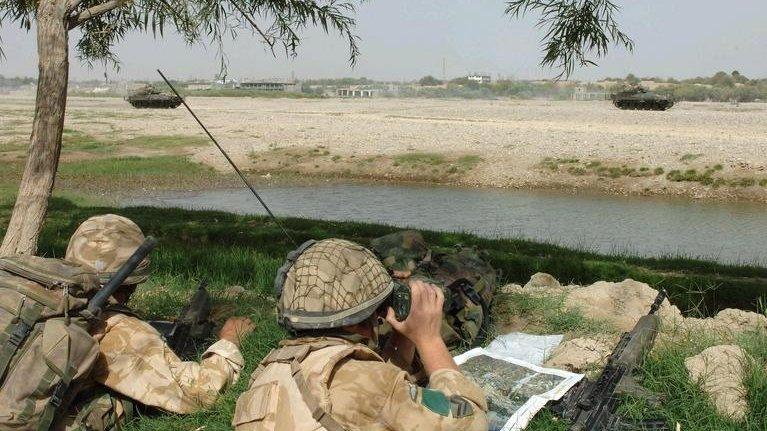Afghan detainee suffers setback in Army detention case
- Published

Serdar Mohammed was seized in the Kajaki area of Helmand province, Afghanistan
An Afghan national who was detained by British forces for more than 100 days has suffered a setback in his attempt to win damages from the UK government.
Serdar Mohammed was arrested in Helmand in 2010 but argues his subsequent detention breached his human rights.
In 2014, the High Court ruled UK forces had unlawfully detained Mr Mohammed before handing him to Afghan police.
However, the UK's Supreme Court has now allowed the Ministry of Defence to appeal against that ruling.
Mr Mohammed was seized on 7 April 2010 in the Kajaki district of Helmand province, Afghanistan, as he fled along a road where a rocket-propelled grenade launcher had been found after a firefight.
He was detained by British troops until 25 July 2010, when he was then transferred to Afghan authorities.
Mr Mohammed was subsequently tried, convicted and sentenced to 10 years' imprisonment for offences relating to the insurgency in Afghanistan.
However, Mr Mohammed claims British forces held him for an unlawful amount of time and he is seeking damages.
'A partial victory'
Under International Security Assistance Force procedures, suspects were allowed to be detained for a maximum of 96 hours - or four days - after which time they had to be released or handed over to Afghan authorities.
In November 2009, the UK government adopted its own policy under which ministers could authorise detention beyond 96 hours - if it was believed a suspect could provide new intelligence.
However, in 2014, High Court judge Mr Justice Leggatt found that while Mr Mohammed's arrest and initial detention for the initial 96 hours had been lawful, he had then been unlawfully held for a further 106 days.
Mr Mohammed's lawyers successfully argued in court that the UK's policy on detention had breached his rights under the European Convention on Human Rights (ECHR).
The MoD then challenged that ruling.
The Supreme Court judgement said that even if it can be shown the MoD contravened the ECHR in detaining Mr Mohammed for longer than 96 hours, it would not necessarily entitle him to damages.
BBC defence correspondent Jonathan Beale said the case was now likely to go back to court as the MoD has to show there was an imperative security reason to detain Mr Mohammed.
However, our correspondent said the Supreme Court's ruling would be seen as a "partial victory" for the government.
- Published7 August 2015
- Published2 May 2014

- Published16 May 2012
